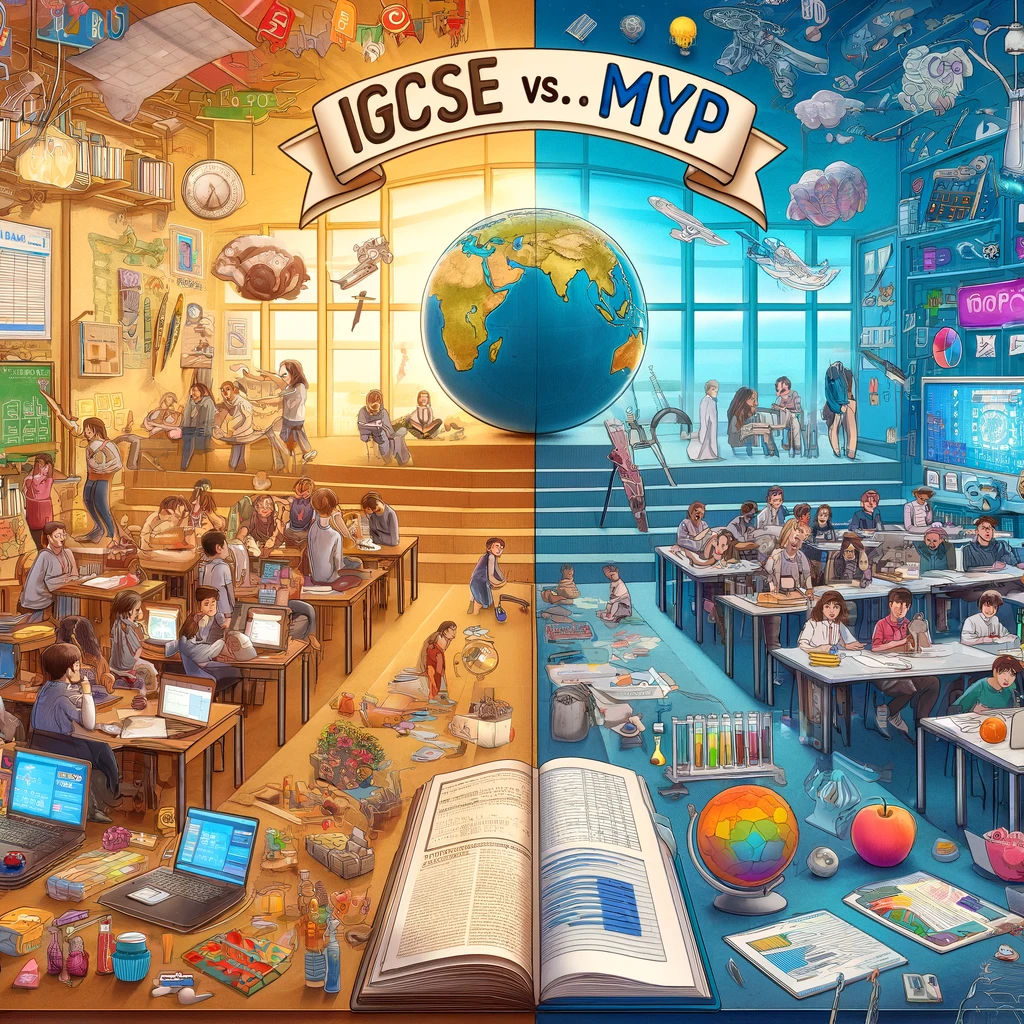Choosing the right educational framework for your child involves navigating through a maze of international curricula, each promising to mold young minds for a globalized future. The Middle Years Programme (MYP) and the International General Certificate of Secondary Education (IGCSE) emerge as two frontrunners in this race, offering distinct approaches to learning, assessment, and personal development. This article aims to shed light on the differences between MYP and IGCSE, providing a compass to guide parents and students through their decision-making process.
The Essence of MYP: A Comprehensive Guide
Exploring the MYP Framework
Originating from the International Baccalaureate Organization, the MYP caters to students aged 11 to 16. It’s an embodiment of a holistic education model, prioritizing intellectual challenge and personal growth alongside academic achievement.
Characteristics and Advantages of MYP
At its core, MYP champions an interdisciplinary method, weaving together subject areas to present a cohesive learning experience. This approach is designed to cultivate an understanding of the interconnectedness of knowledge, fostering versatile learners ready to tackle complex global issues.
Delving into the MYP Curriculum
MYP’s curriculum framework is innovative, featuring eight subject groups that encourage a broad exploration of knowledge. A standout component is the Personal Project, a capstone allowing students to delve deep into a topic of personal interest, showcasing their skills in a tangible way.
IGCSE Uncovered: What You Need to Know
The Foundation of IGCSE
Administered by Cambridge International Examinations, the IGCSE serves as a global standard for students aged 14 to 16. It’s recognized for its rigorous assessment methods and a flexible curriculum that champions depth of study in a range of subjects.
Distinct Features of IGCSE
IGCSE is distinguished by its extensive subject offerings, enabling students to tailor their education to their interests and future ambitions. The program’s examination-centric approach is designed to prepare students for further academic pursuits, emphasizing a balance of theoretical knowledge and practical application.
MYP vs IGCSE: A Detailed Comparison
When it comes to curriculum, the MYP’s breadth contrasts with the IGCSE’s depth, offering a broader versus a more focused educational experience. Pedagogically, MYP’s inquiry-based learning model diverges from IGCSE’s traditional focus on exam preparation. In terms of assessment, MYP embraces project-based evaluations, while IGCSE relies on standardized exams, making each distinctive in their approach to evaluating student achievement.
Making the Right Choice for Your Child
Choosing between MYP and IGCSE depends on various factors including the student’s learning style, academic aspirations, and future plans. Understanding each program’s methodology, assessment strategies, and global recognition can help inform this crucial decision.
Concluding Thoughts: Navigating Your Educational Path
Deciding between MYP and IGCSE is more than a choice of curriculum; it’s about aligning with an educational philosophy that best suits the learner’s needs. Through careful consideration and informed decision-making, you can set the stage for your child’s future successes.




